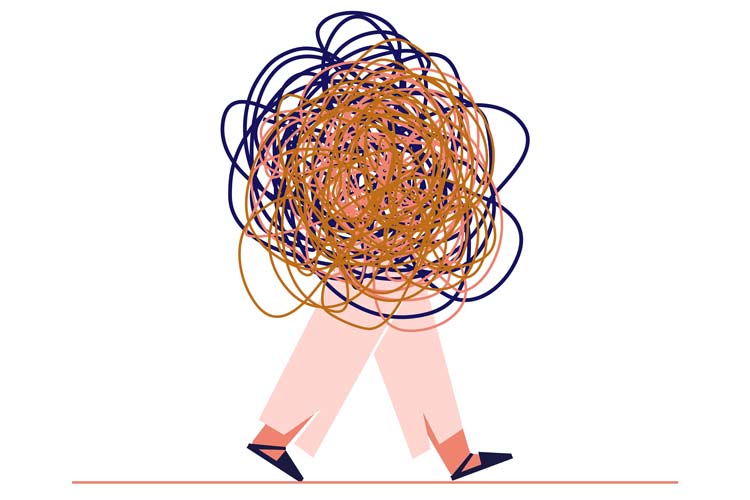There is nothing inherently wrong with being angry. It’s just another emotion, and it is completely normal and sometimes even healthy to feel angry sometimes. Anger becomes a problem when it is not controlled and becomes destructive.
Understanding Anger
Anger can vary from mild annoyance to extreme rage. When a person is angry:
- Their blood pressure and heart rate increase
- Their hormones and adrenaline increase
- They may be responding to internal or external events or even memories
- They may or may not feel inclined toward aggression
Anger is an adaptive trait, meant to help people address threats. If these threats are of a violent nature, anger can give a person enhanced ability to fight back.
How People Cope
People can respond to feelings of being angry in three primary ways, according to the APA:
- Express it verbally – assertively discussing the angry feelings in a calm manner is the healthiest option. You can express a need without hurting other people.
- Suppress it – this is when a person denies their anger and tries to redirect their mind to a different subject to make themselves feel better. The downside of this strategy is that it sometimes turns the anger inward, making the person upset with themselves. Resentment can build, making the anger worse the next time it arises.
- Calm it – this technique focuses on calming the physical response by using deep breathing or other strategies to lower the heart rate and regain a sense of composure. It can be helpful to use this technique before discussing the angry feelings.
When these options fail, people sometimes turn to aggression and other problematic behaviors to act out their rage.
Risks of Poorly Managed Anger
People who don’t handle their anger well can experience long-term health consequences. These include:
- High blood pressure
- Hearth problems
- Headaches
- Skin disorders
- Digestive problems
Why are Some People More Angry than Others?
Studies have found that some people are generally more prone to irritability, grumpiness, and anger. These people are thought to have less tolerance for frustration. They may have difficulty coping with annoyances and adversity. Contributing factors to this disposition include:
Brain damage or disease – diseases that damage the brain’s frontal regions can result in behavior that is more aggressive or impulsive
Sociocultural factors– belonging to a society or culture that does not encourage healthy expression of anger can make it difficult for people to know how to handle their anger
Family background – growing up in a household that is chaotic, unsafe, or disruptive can result in more anger
Techniques
In the past, it was believed that venting and “letting it all out” in a rage room or other safe location was a helpful way to address anger. However, these strategies are no longer deemed particularly effective. Various sources offer numerous suggestions for how people can calm themselves when they are feeling angry:
- In the moment
- Take some slow, deep breaths
- Repeat the phrase “calm down” or “relax”
- Give yourself a quick pep talk
- Put yourself in the other person’s shoes
- Look for the humor in the situation
- Avoid inflammatory language or over-generalizations
- Preventative strategies
- Get regular exercise
- Avoid alcohol and illicit substances
- Keep a journal of times you felt angry and why
- Focus on becoming a better listener, one who listens to understand and doesn’t just wait for their turn to respond
- Start with the assumption that people have the best of intentions and that you aren’t being targeted, singled out, or intentionally harmed, but are just experiencing a miscommunication or mistake
Once You’re Calm
It can be tempting to respond immediately to a person or situation that has caused anger, but a better strategy is to wait until you’re calm and then take these steps:
- Think before speaking
- Try to identify possible solutions
- Use “I” statements – instead of saying, “You made me mad when you…”, try saying, “I become angry when…happens.”
- Don’t hold a grudge. Let go of your anger and move forward once a resolution is found.
Helping Children Manage Anger
Children sometimes have difficulty regulating challenging emotions, including anger. Adults tend to respond to the anger of children and adolescents with their own anger, but this generally only makes the situation worse. The best way for an adult to help a child learn how to handle anger is to model the behavior, using the coping and communication strategies listed above. When angry children become aggressive:
- Stop the fight immediately and restore safety
- Explain the options for appropriate ways to express disagreement
- Follow through on discipline for aggression
- Forgive the child for their mistakes and confirm that they are still a good kid who is loved
Seeking Help
It can sometimes be difficult for people to realize when their anger is at a problematic level. Intense or chronic anger can be a sign of some mental health conditions, especially if:
- The person’s anger is damaging their relationships
- The person feels guilty after outbursts
- People seem to be afraid of them when they are angry
If you see any of these issues in yourself or someone else, it is probably time to seek out professional help. A therapist may be able to help you work through the source of anger and develop coping methods. At Highland Hospital, we can help you assess whether a mental health disorder might be contributing to your anger. Then, we can offer compassionate, evidence-based treatment to help you manage the disorder and achieve a greater sense of control over your emotions.










